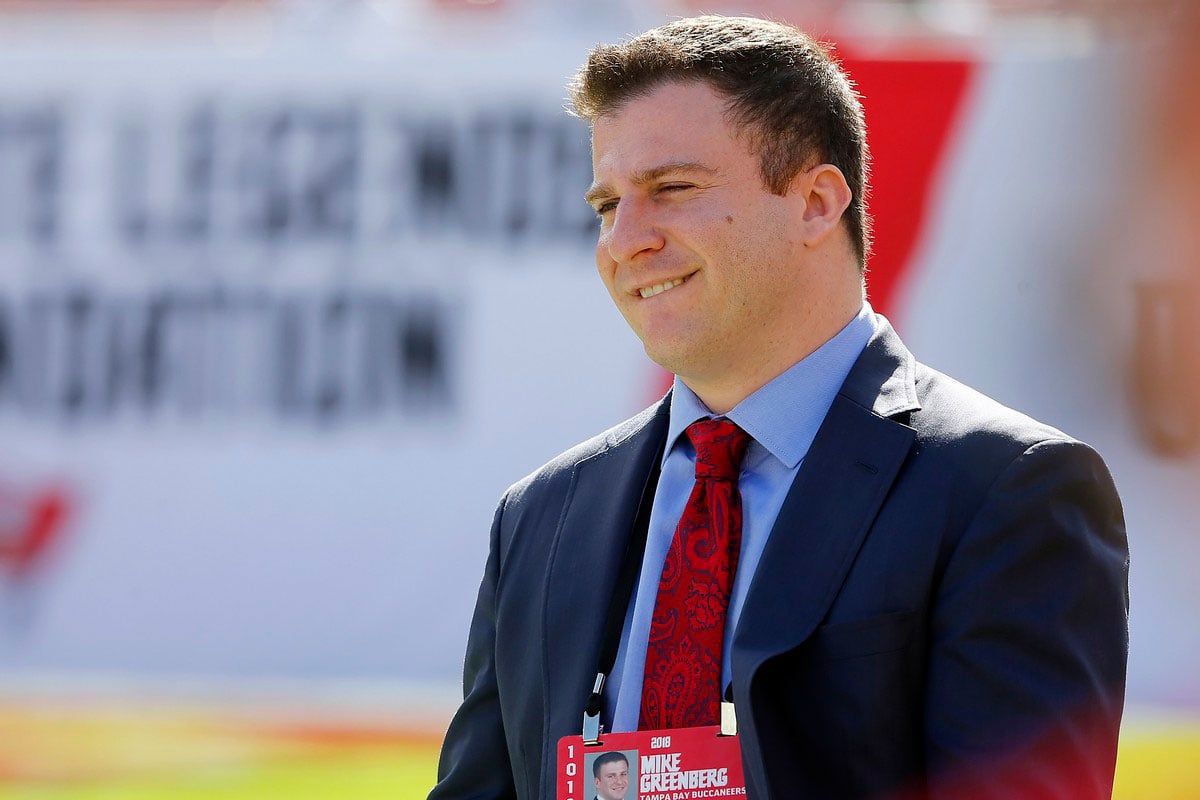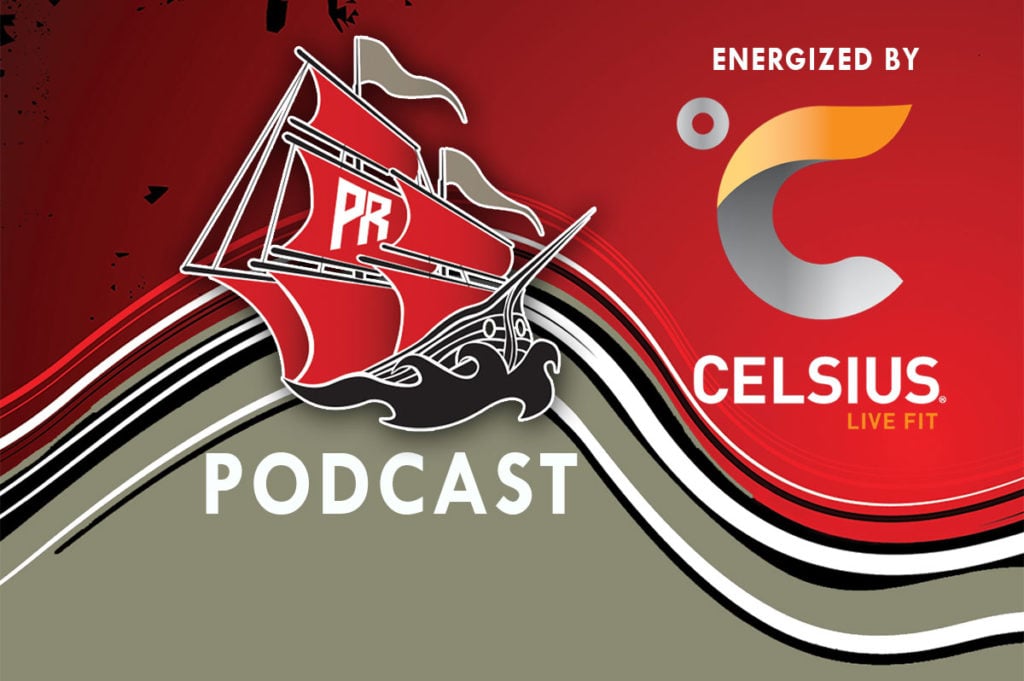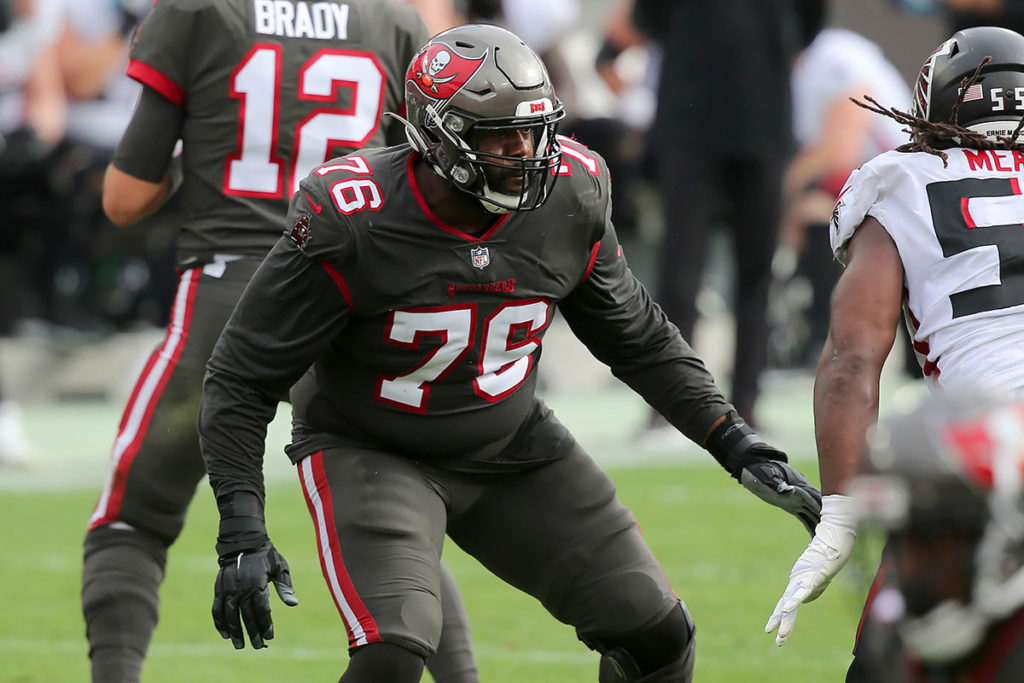SR’s Fab 5 is exclusively sponsored by Edmonson Electric • AC • Security
– the official smart home and security company of PewterReport.com
For the past 40 years, Edmonson Electric • AC • Security has proudly served central Florida with electric services and now proud to add state-of-the-art “Smart Home” technology, security systems and air conditioning to its roster.
Whether it’s surveillance cameras, home theaters, or smart lighting, Edmonson Electric • AC • Security is automating your dream home. Visit EdmonsonElectric.com to find out more about controlling, monitoring and securing your home or call 813.910.3403 for additional information.
Control. Monitor. Secure.
FAB 1. Greenberg Has Bucs’ Future Salary Cap In Great Shape
Jason Licht made two huge moves in his first season as general manager of the Buccaneers back in 2014.
Licht’s first-ever draft pick as Tampa Bay’s G.M. was to select future Hall of Fame wide receiver Mike Evans with the seventh overall pick. While that move turned out to be quite amazing, not much went right for the Buccaneers in 2014, as the team finished with a dismal 2-14 record in Lovie Smith’s first season as head coach.
Yet his other move turned out to be amazing, too – although the Bucs’ new G.M. probably didn’t realize it at the time. Licht decided to give Mike Greenberg, Tampa Bay’s director of football administration, who was a holdover from the Mark Dominik regime, a year to prove himself as the team’s capologist.
 It was a move that would end up having a lasting impact on the long-awaited rise of the Buccaneers and the team’s Super Bowl championship in 2020.
It was a move that would end up having a lasting impact on the long-awaited rise of the Buccaneers and the team’s Super Bowl championship in 2020.
Greenberg originally joined the Bucs as a player personnel assistant in 2010 when Dominik was the team’s general manager before replacing Digger Daley as director of football administration a year later. When Licht took over as G.M. in 2014, Greenberg aided him in re-signing defensive tackle Gerald McCoy to a contract extension, then star linebacker Lavonte David shortly thereafter.
Greenberg proved he was loyal to Licht, and his visionary approach to salary cap management mirrored that of his friend Kevin Demoff, who was the Tampa Bay’s capologist under Bruce Allen in the late 2000s. Demoff left the Bucs to join the Rams as the chief operating officer in 2010, which essentially paved the way for Greenberg to fill that role as the team’s cap manager and chief contract negotiator.
Not only has Greenberg been responsible for helping Licht negotiate some of the most important contracts in team history, such as Tom Brady’s initial contract and his recent extension along with Shaquil Barrett’s big contract extension, but also so much more. Here is Greenberg’s bio on Buccaneers.com, which details his job duties:
“Greenberg works directly with General Manager Jason Licht on all aspects of the salary cap, contract negotiations, compliance with the NFL’s Collective Bargaining Agreement, as well as the club’s financial and strategic planning. He also oversees budgeting for all football operations, including the coaching, scouting, video, athletic training, equipment, groundskeeping, strength and conditioning and player development departments.”
Bucs director of player personnel John Spytek describes how Greenberg does it all.
“Greenberg does a great job organizing our entire personnel department,” Spytek said. “He’s always kind of grabbing things from here, there and everywhere, and helping formulate a plan from that, whether it’s building a draft day trade scenario charts or setting up the cap spreadsheets. He makes sure we’re always on point and know what’s coming at all times. He has his hands in everything. I kill him all the time because he never says no to anybody, so he gets pulled in a thousand directions. But he’s excellent at taking all of it and putting it together in a way that Jason needs, but also helping myself, (director of college scouting) Mike [Biehl] and (director of pro personnel) Rob [McCartney] run our departments on a daily basis, too.
“He’s a selfless guy and he’s always willing to help you with what you’re doing. Sitting down with all of our scouts and formulating a plan for undrafted free agency was huge last year because it was so different. He said, ‘Here’s the money we have,’ and then explained it to them, so if they get a question on the phone from the agent and that’s the last part of the negotiation, then the deal doesn’t fall apart. They were able to talk about splits or one- or two- or three-year contracts. They were very well prepared.”

Bucs director of football administration Mike Greenberg and GM Jason Licht – Photo by: Cliff Welch/PR
Greenberg’s salary cap wizardry has been on display for years, keeping Tampa Bay’s dead cap money to a bare minimum as a result. His approach has been to avoid using signing bonuses, which allows for short-term cap relief by prorating that bonus money over the length of the contract. But all that does is kick the can down the road and add dead cap money if a player is cut or traded prior to reaching the end of his contract.
And instead of back-loading contracts for immediate cap relief, Greenberg has not been afraid to do the opposite and front-load deals, especially by using guaranteed money and roster bonuses instead of using signing bonuses. That way if a player signing doesn’t work out the team can usually move on with little or no dead cap money negatively affecting the salary cap.
When Licht and Greenberg signed center Ryan Jensen to a four-year, $42 million contract in 2018, Jensen had a base salary of $2 million, a roster bonus of $10 million that year and a salary cap charge of $12 million. The first two years of that contract featured all the guaranteed money, which was a total of $22 million. Greenberg’s thinking was that the team obviously wanted him in 2018 and even if he didn’t play great that year the Bucs would give him another year for sure to prove his worth before deciding to move on from him. With no more guaranteed money after 2019, the Bucs could cut Jensen in 2020 without any dead salary cap hit if it wanted to.
And instead of getting a signing bonus, as most other teams do, Greenberg gave Jensen $10 million upfront in the form of a roster bonus, which would hit the cap in 2018 as planned without having any proration element that comes with signing bonus money.
But given the retraction in this year’s salary cap from $198 million to $182.5 million due to the economic woes from COVID-19 in 2020, Greenberg is deviating from the norm and using signing bonuses to help lower the 2021 cap value of players he’s re-signing this offseason.
“Well the reason a lot of those contracts were set up that way for so long, which some were before I was even here, is so that when you get to a point where you have a very successful team and you want to keep as many of the core players that you can together,” Licht said. “We don’t want to do anything that’s going to mortgage or completely disrupt the future, but we have flexibility now and the ability to try to keep this team together, as Bruce [Arians] and I have both been saying.”
The Bucs’ dead cap money this year is only $2,196,595, according to OverTheCap.com, which is the fourth-lowest amount in the league. And that includes $1.372 million that Barrett recently received for the grievance he filed over the franchise tag last year when Tampa Bay tendered him at the linebacker value rather than the defensive end value.
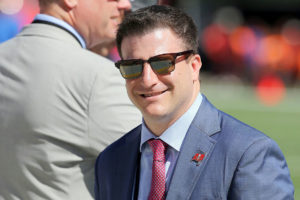
Bucs director of football administration Mike Greenberg – Photo by: Cliff Welch/PR
The median dead cap amount in the NFL is $9,345,071 this year, and Greenberg’s successful cap management in previous years means that the Bucs won’t be mortgaging their future. Greenberg and the Bucs will be back to using roster bonuses rather signing bonuses and guaranteeing the first two years of deals again when the salary cap rises in 2022.
Greenberg’s way of handling Tampa Bay’s salary cap is a far cry of how former general manager Rich McKay bungled it after Super Bowl XXXVII which put the Bucs in salary cap hell, forcing the team to cut star players and have to deal with a lot of dead money. Instead, the Bucs’ are reloading for another Super Bowl run and their cap situation is alive in well – not just in 2021, but in the years to come – thanks to Greenberg’s greatness.
And Licht’s wise decision to keep Greenberg around.
FAB 2. How Greenberg Used Voidable Years To Create Cap Magic
Let’s take a look at how Bucs director of football administration Mike Greenberg has been able to deviate from the norm and squeeze all of Tampa Bay’s big free agents under the salary cap in a year in which the league’s cap actually contracted from $198 million to $182.5 million due to the economic woes of COVD-19.
In examining Tom Brady’s contract extension, Greenberg used voidable “dummy” years for the first time. The Bucs added a legitimate year on to Brady’s contract, which means he’ll play in Tampa Bay through the 2022 season, but there are three voidable years at the end of the contract that allows Greenberg to spread the $40 million in roster bonuses Brady received and other bonus money over five years instead of just two.
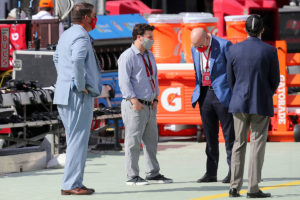
Bucs GM Jason Licht, director of football administration Mike Greenberg and co-chair Joel Glazer – Photo by: Cliff Welch/PR
That’s why Brady only counts for $9.1 million in cap value this year instead of the $28.375 million he was supposed to before his extension. Brady’s base salary is just $1.1 million in 2021 with $8 million of his pro-rated bonus money. So what happens when those three dummy years are voided after 2022? Then Tampa Bay will get hit with $24 million in dead cap money, but the Bucs can choose to spread that out to an $8 million hit in 2023 and $16 million in 2024 if the team elects to.
The contract for Lavonte David is similar. The 31-year old linebacker also has three voidable years tacked on to the end of his two-year, $25 million extension to spread out the bonus money proration. David’s 2021 cap value is just $3.4 million in 2021 and then rises to $14.8 million next year when the league’s salary cap is expected to swell by $30 million due to new TV and broadcast contracts.
A salary cap around $210 million in 2022 will likely lead to a salary cap of $220 million in 2023 by the time Brady and David’s contracts expire and the dead cap money hits. David’s dead cap money is only expected to be $6.9 million and should be easy to absorb three years from now.
It’s the same thing with Rob Gronkowski’s contract extension. It’s really a one-year deal worth $8 million – $4 million in base salary and $4 million in prorated bonus money. Gronkowski’s cap hit in 2021 is just $4.8 million this year as a result, and creates a modest $3.2 million dead cap hit in 2022. Now if Gronkowski decides to re-up with the Bucs again in 2022, Greenberg can convert that signing bonus proration to a roster bonus and just add that to next year’s contract instead of kicking the can down the road and creating more dead cap money in 2023 with Gronkowski.
Barrett’s extension was different. He signed a four-year deal worth $68 million with $34.5 million in guaranteed money, including an $18.75 million signing bonus. The signing bonus proration counts $3.75 million per year and Barrett’s cap value is only $5.6 million in 2021 due to a low base salary, which climbs up to $14.5 million next year when the cap is expected to rise significantly.
Barrett, who will be 29, really only needs to play two years in Tampa Bay for the guaranteed money in his contract to be fulfilled. The Bucs could part ways with him in 2023 and only have a dead cap money hit of $11.25 million. If he finishes his contract and plays that fourth season the Bucs would only have a dead cap hit of $7.5 million in 2024.
Greenberg and the Bucs can get away with scheduling a little dead money in the coming years because it’s not the team’s standard operating procedure. Tampa Bay is actually in tremendous salary cap situation in 2022 and 2023, according to Pro Football Focus’ Brad Spielberger, who was a recent guest on the Pewter Report Podcast. Read more on that in Fab 3.

Bucs GM Jason Licht and director of football administration Mike Greenberg – Photo by: Cliff Welch/PR
“We talk often several times a day, and we talk about the cap, where we’re at and where we’re going to be three years from now,” Licht said. “Greenberg has a great way of reading my mind. He’ll look at me and he’ll say, ‘You want this guy over that guy, right?’ He’s invaluable on a number of fronts.”
Spytek marvels at Greenberg’s resilience during free agency, which for team capologists, is their own version of the playoffs given the pressure their under during this critical team-building window in the offseason.
“It’s a tough job to be the guy that has to go back and forth all the time with agents,” Spytek said. “They’re trying to wear you down and that falls on him a lot. It’s a lot of pressure when you’re doing a deal for Tom Brady – that’s different from doing negotiations with pretty much anyone else we’ve ever done negotiations with. He’s excellent at all that stuff.”
One would think that Greenberg, who was named in The Athletic’s “NFL 40 Under 40: The rising stars shaping the direction of the NFL,” would be on a lot of team’s radars for a general manager position. But Greenberg has told me on countless occasions that he does not aspire to be a general manager and run his own team.
The reason why he hasn’t interviewed for general manager positions is because the word is likely out around the league by now that he loves working alongside Licht and is loyal to him and the Buccaneers organization. Greenberg and his wife, Ilana, have two young sons, Hank and Harry, and love living in Tampa Bay.
In his 11 years in Tampa Bay, Greenberg has only been to the playoffs just once – in 2020 when the team he helped build won Super Bowl LV in the middle of the COVID-19 pandemic. The fun – making it to the playoffs to compete for a championship – has just begun for Greenberg, so why would he want to leave now instead of enjoying the fruits of his labor.
Besides, Greenberg prides himself as a numbers guy, a salary cap strategist and a contract negotiator – not a personnel guy, although he’s made strides in that area by being around the likes of Licht, Biehl, McCartney, Spytek and his predecessor, Jon Robinson, who left to become the Titans general manager in 2016, and learning from them.
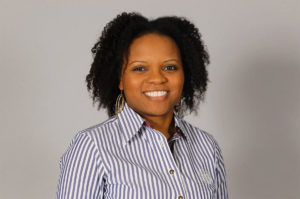
Bucs director of football research Jackie Davidson – Tampa Bay Buccaneers
Greenberg also got some much needed help this year in helping recruit Jackie Davidson to Tampa Bay. The two worked together in the New York Jets organization in 2008-09 when Davidson was the football administration manager. Davidson, who holds the title of director of football research in Tampa Bay, was the Jets director of football administration from 2015-18.
In addition to working with the Bucs coaches from a football analytics standpoint, she also aids Greenberg in salary cap planning and contract negotiations after spending years as the Jets’ lead negotiator and salary cap strategist. In fact, Davidson might get a general manager position in the NFL before Greenberg does, and that is absolutely fine with him, as he aspires to hold a COO position one day like Demoff has in L.A. rather than be a G.M.
“He’s the best,” Biehl said of Greenberg. “Everybody we have here is the best in my opinion, but Greenberg has this special way about him. He’s super smart and knows the cap inside and out. He has a great way of dealing with people – not only agents, but also people in the building. He does so many things behind the scenes that people don’t realize.”
And that’s just how Greenberg likes it – behind the scenes, with the Tampa Bay’s salary cap wizard continuing to work his magic for Licht and the Buccaneers.
FAB 3. Tampa Bay’s Salary Cap Situation In 2022 And 2023
If you are still fretting over the fact that Bucs general manager Jason Licht and director of football administration Mike Greenberg have now created some future dead cap money scenarios with the recent use of signing bonuses and voidable “dummy” years in the contract extensions of quarterback Tom Brady, inside linebacker Lavonte David, outside linebacker Shaquil Barrett and tight end Rob Gronkowski don’t worry.

Bucs DT Vita Vea and GM Jason Licht – Photo by: Cliff Welch/PR
Here’s why. The Bucs have just 35 players under contract for 2022, and currently have about $65 million in cap space – based on the projection of a $203 million cap next year that takes into account the recently completed richer TV and broadcast contracts. But that $65 million cap number will go down as Tampa Bay adds in the 2021 draft class and any more free agent signings that are longer than one-year deals.
Still, the Bucs are poised to enter free agency with more cap room next year than they had this season, and that’s a good thing.
Yet because of the team’s affinity for doing short-term deals, the Bucs will have their share of free agents coming up in 2022.
As it stands right now, wide receiver Chris Godwin, tight ends Rob Gronkowski and O.J. Howard, left tackle Donovan Smith, center Ryan Jensen, outside linebacker Jason Pierre-Paul, cornerback Carlton Davis III, running back Ronald Jones II, guards Alex Cappa and Aaron Stinnie, safety Jordan Whitehead and defensive end Will Gholston are all slated to hit free agency next year. Nose tackle Vita Vea’s rookie contract will also expire, although the Bucs will almost certainly pick up his fifth-year option, which means he won’t be a free agent until 2023.
You can add defensive tackle Ndamukong Suh to the list as soon as he signs his one-year extension with the Bucs, as expected. That’s 13 starters or starting-caliber players – not including Vea – that will become free agents in 2022.
Yet some of those players, including Jones, Whitehead, Gholston, Cappa or Stinnie, are likely to be replaced by cheaper talent in this year’s draft or by players that are already on the roster. It’s too early to state anything definitively right now as we’re still a year away from those decisions being made and we haven’t played the 2021 season yet.
Tampa Bay’s salary cap situation in 2023 is even better as there are only 11 Buccaneers under contract, and OverTheCap.com has the Bucs with over $151.5 million worth of cap space. That accounts for Brady’s $24 million in dead cap money (which could be $8 million in 2023 and $16 million in 2024 if the team so chooses), but doesn’t yet account for David’s $6.855 million in dead cap money or Gronkowski’s $800,000 in dead cap money. So the actual cap room the Bucs will have in 2023 is really around $143 million when factoring that in.
The key to effective salary cap management in the future isn’t just Greenberg’s cap wizardry. It’s also Licht and his front office continuing to hit in the NFL Draft and finding productive, immediate starters that can play on rookie deals for four years.
The Bucs had five starters or starting-caliber players on offense who were playing on their rookie deals in Super Bowl LV – Godwin, Jones, Stinnie, Miller and right tackle Tristan Wirfs. If Cappa had been healthy he would have been starting in place of Stinnie. There were even more defensive players – eight – playing on rookie deals in the Super Bowl, including Vea, Davis, Whitehead, inside linebacker Devin White, cornerbacks Sean Murphy-Bunting and Jamel Dean and safeties Mike Edwards and Antoine Winfield, Jr.

Bucs GM Jason Licht and QB Tom Brady – Photo by: USA Today
When teams miss on draft picks they are often forced to head to free agency to find more expensive replacements. Licht and the Bucs have successfully avoided having to rely on free agency that since the disastrous 2016 draft class, as it’s been way more hits and misses. While key free agent additions like Brady, Gronkowski, Barrett, Suh and kicker Ryan Succop certainly helped push the Bucs over the top in their Super Bowl run, over half of the Super Bowl starters were homegrown through the draft.
Continued smart drafting by Licht and sound salary cap management by Greenberg should keep the Bucs’ Super Bowl window open for the next two years – and perhaps beyond if Tampa Bay can continue to retain its star players and find an able replacement for Brady at quarterback down the road.
FAB 4. Bucs Got A Bargain With Barrett
The Buccaneers got an absolute bargain by re-signing outside linebacker Shaquil Barrett to a four-year, $68 million deal that includes $34.5 million in guaranteed money. Why? Because Barrett’s new deal will have earn an average of $17 million per season, which comes on the heels of him making the team’s franchise player and paying him $15.828 million in 2020.
Barrett felt he deserved the $17.788 million franchise tag designation for defensive ends instead of the linebacker designation, and filed a grievance with the league that the Bucs recently settled, giving him an extra $1.372 million pay day.
“It means a lot that we was able to go through there and not have to actually go to the grievance,” Barrett said. “That was just a sign of good faith on both sides. We didn’t want to have to go all the way through with a grievance, so we were able to end up settling on a good number.
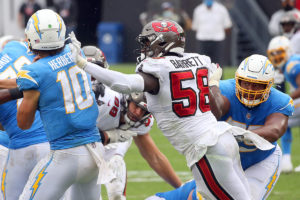
Bucs OLB Shaquil Barrett – Photo by: Cliff Welch/PR
“And they knew they wanted to bring me back, so they didn’t want to really have to go through all that type of stuff. And I didn’t want to go through it either because I wanted to be here. And even though I know it’s a business, we just took that part of it out of there. We just made it easy, made it simple to start working on a long-term contract, and we were able to do it.”
With the extra $1.372 million in tow, Barrett essentially made $17.2 million last year. He actually took a pay cut down to his average of $17 million over the next four years. Not only that, but the Bucs gambled that with the salary cap retraction from $198 million in 2020 to $182.5 million in 2019 that the edge rusher market wouldn’t top out at the $18 million per year mark, or even at $20 million per year, as some had forecast.
As they say, timing is everything.
The Bucs convinced Barrett and his agent Drew Rosenhaus to get a deal done before free agency started in earnest on Monday, March 15, which was the beginning of the legal tampering period. Barrett’s desire to remain in Tampa Bay where he is a great fit in Todd Bowles defense and to help the team try to defend its Super Bowl championship was a driving force in signing him before he hit free agency.
Barrett definitely would have done better on the open market. One of those rare instances where "he wanted to be here" is probably true.
— Jason_OTC (@Jason_OTC) March 15, 2021
Still, Barrett wound up being the highest-paid edge rusher in this year’s free agent class.
New edge rusher AAVs so far…
Shaq Barrett: $17m
Romeo Okwara: $13m
Matthew Judon: $14m
Yannick Ngakoue: $13m
Leonard Floyd: $16m
Samson Ebukam: $6mNo $20m guys, so market hasn’t gone wild, but 49ers still fortified with budget option. Makes me think they’re not done at edge
— David Lombardi (@LombardiHimself) March 15, 2021
With the $21.2 million he’s made in two years in Tampa Bay and the $34.5 million he’s guaranteed over the next two years, Barrett will have made at least $56.7 million in his first four years in Tampa Bay. Yet despite the fact that he’s recorded the most sacks in the NFL over the last two years with 27.5 (plus four more in the postseason), Barrett is only tied for ninth on the list of the highest-paid edge rushers with New Orleans’ Cam Jordan and San Francisco’s Arik Armstead and Dee Ford.
Los Angeles’ Joey Bosa tops the list of edge rushers with an average of $27 million, followed by Cleveland’s Myles Garrett with an average of $25 million. Both of those deals were signed last year prior to the salary cap’s downturn.
Usually when a player becomes the highest-paid at a certain position in free agency he ends up re-setting the marketing – or at least cracking the Top 5. In Barrett’s case he barely cracked the Top 10, and that’s to the Bucs’ benefit.
FAB 5. SR’s Buc Shots
• SAPP NOT HAPPY ABOUT SHAQ’S DEAL: Bucs Hall of Fame defensive tackle Warren Sapp is happy that pass-rushing outside linebacker Shaquil Barrett is back in Tampa Bay with a new deal. But he’s not happy with the amount Barrett received, which is an average of $17 million per year – or $18 million per year if he hits certain incentives.
“I would’ve told Tampa to hold that offer and I would have touched the open market to see what I was really worth,” Sapp said. “That’s what you do because the team franchised you when you were leading the NFL in sacks and broke my sack record. Now they want to give you a deal when you came off a not so great year, but a great playoff. Nah, I’m going to see what somebody else thinks I’m worth.”
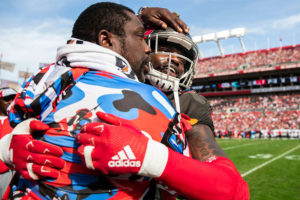
Warren Sapp and Bucs OLB Shaq Barrett – Photo courtesy of the Tampa Bay Buccaneers
Sapp and Barrett formed a bond back to the 2019 season when Barrett broke Sapp’s Bucs single season sack record with 19.5 sacks.
“The young man is a talented, talented man that can rush the passer,” Sapp said. “He can do it all. I would have told Tampa to hold that offer and said, ‘Y’all prevented me from seeing what I’m worth. I’m a two-time Super Bowl champion with an NFL sack title underneath my belt. I want to go see what I’m worth.’
“But I understand. He wanted something comfortable and it’s comfortable for him. It ain’t a bad check.”
• MORE PROOF THAT BARRETT IS A BARGAIN: Take a look at the deal that Tampa Bay gave outside linebacker Shaquil Barrett compared to the deal that the Los Angeles Rams gave Leonard Floyd, who is literally half the edge rusher that Barrett is.
Leonard Floyd 13.5 sacks over the past two seasons – 4-years, $64 million deal.
Shaq Barrett 27.5 sacks over the past two seasons [with four more in the playoffs] 4-years, $68 million deal.#Bucs got a good deal.
— Dov Kleiman (@NFL_DovKleiman) March 15, 2021
• BUCS FREE AGENCY IN FULL SWING ON THE PEWTER REPORT PODCASTS: The Pewter Report Podcast is energized by CELSIUS and broadcasts four live episodes each week in the offseason – Monday, Tuesday, Wednesday and Thursday at our original 4:00 p.m. ET time slot. We’ve been hitting it hard with the free agency this week and we’ll have a special guest on Monday, March 22, as Bucs legend Warren Sapp joins us to break down the top defensive tackles and edge rushers in the 2021 NFL Draft.
Here are the four latest editions of the Pewter Report Podcast to watch in case you missed an episode.
PewterReport.com’s Jon Ledyard and Scott Reynolds discussed the Bucs’ re-signing of outside linebacker Shaquil Barrett and tight end Rob Gronkowski on Monday’s Pewter Report Podcast.
On Tuesday, PewterReport.com’s Jon Ledyard and Scott Reynolds were joined by Pro Football Focus’ Brad Spielberger to discuss Tampa Bay’s salary cap situation in 2021 and beyond.
PewterReport.com’s Jon Ledyard and Taylor Jenkins discussed the re-signing of kicker Ryan Succop and had the latest news on the Bucs’ other targets in free agency on Wednesday’s Pewter Report Podcast.
PewterReport.com’s Jon Ledyard and Mark Cook discussed the return of Bucs defensive tackle Rakeem “Nacho” Nunez-Roches on Thursday’s Pewter Report Podcast.
Watch the Pewter Report Podcasts live on our PewterReportTV channel on YouTube.com and please subscribe (it’s free) and add your comments. All of our Pewter Report Podcasts will be archived there so you can go back and watch the recorded episodes if you missed it live.
 The audio versions of the Pewter Report Podcasts will can be found on iTunes and Soundcloud. There is no better time to listen to or watch a new Pewter Report Podcast – energized by CELSIUS – than Friday afternoon on the way home from work, or early Saturday morning during your workout or while running errands.
The audio versions of the Pewter Report Podcasts will can be found on iTunes and Soundcloud. There is no better time to listen to or watch a new Pewter Report Podcast – energized by CELSIUS – than Friday afternoon on the way home from work, or early Saturday morning during your workout or while running errands.
The popularity of the Pewter Report Podcast continues to grow. In addition to listening to the Pewter Report Podcasts on PewterReport.com you can also subscribe to the free podcasts at PodBean by clicking here and on SoundCloud by clicking here. And of course the Pewter Report Podcast is also available on iTunes and YouTube. Make sure you subscribe so you don’t miss a single episode.
• FITZMAGIC VS. THE BUCS IN 2021: The Tampa Bay Buccaneers will play against one of their former quarterbacks again next year as Ryan Fitzpatrick just signed a one-year deal with Washington. The 38-year old Fitzpatrick played in Tampa Bay from 2017-18.
✅ Rams
✅ Bengals
✅ Bills
✅ Titans
✅ Texans
✅ Jets
✅ Bucs
✅ Dolphins
✅ WFTRyan Fitzpatrick got jokes 😂 pic.twitter.com/BaOju2gHva
— SportsCenter (@SportsCenter) March 18, 2021
• BARRETT BACKS THE BOLTS: Fresh off his contract extension with the Buccaneers, outside linebacker Shaq Barrett took the Lombardi Trophy to Amalie Arena to watch the Tampa Bay Lightning beat the Chicago Blackhawks on Thursday night.
Bucs star Shaq Barrett in the house with Lombardi Trophy. “Ready to go for No. 2!” pic.twitter.com/My4YmId6uq
— Joe Smith (@JoeSmithNHL) March 18, 2021
Scott Reynolds is in his 30th year of covering the Tampa Bay Buccaneers as the vice president, publisher and senior Bucs beat writer for PewterReport.com. Author of the popular SR's Fab 5 column on Fridays, Reynolds oversees web development and forges marketing partnerships for PewterReport.com in addition to his editorial duties. A graduate of Kansas State University in 1995, Reynolds spent six years giving back to the community as the defensive coordinator/defensive line coach for his sons' Pop Warner team, the South Pasco Predators. Reynolds can be reached at: [email protected]

